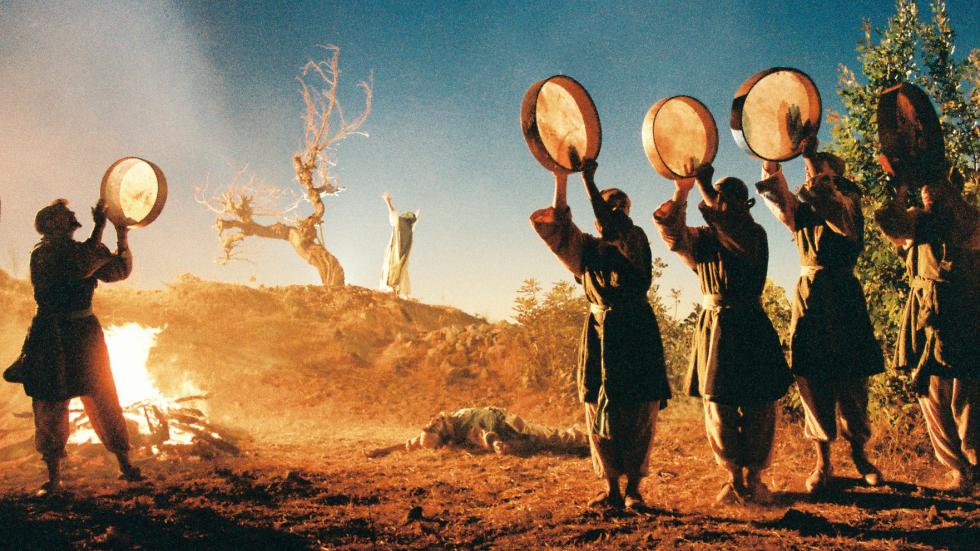AL MASSIR

This remarkably sensual film, presented at Cannes (and rediscovered at Locarno in 2021 thanks to MISR International's restoration), is arguably the greatest cinematic masterpiece about Al-Andalus. In 12th century Cordoba, the famous philosopher Averroes produced a major work. The influence of his teaching spread through the Enlightenment and is still relevant today. To appease the fundamentalists, Caliph Al-Mansur ordered all of Averroes' books to be burned. Averroes' family and followers then decide to make copies of his books and smuggle them across the border. Despite the pressure exerted by the fundamentalists, human knowledge prevails on its way to the Other, to Progress.
Direction: Youssef Chahine
Script: Youssef Chahine, Khaled Youssef
Cinematography: Mohsen Nasr
Editing: Rachida Abdel Salam
Music: Kamal Al Taweel, Yehia Al Mougy
Sound: Gasser Khorshed
Production Design: Hamed Hemdan
Cast: Nour El Sherif, Laila Elwy, Mahmoud Hemeida, Safeya El Emary, Mohamed Mounir, Khaled El Nabawy
Production: Humbert Balsan, Gabriel Khoury
INTO ANOTHER HISTORY OF EUROPEAN CINEMA
History, we know, is neither neutral nor incontestable: depending on who tells it and how. When it comes to the history of European cinema, it is increasingly necessary to re-evaluate the dominant canon that guides it, bringing to the forefront works both remarkable and often undervalued. For this reason, a new space has been launched to offer a new way of contemplating the continent's film legacy each year, entitled "Into Another History of European Cinema". The section is set up as a forum for reflection and (re)discovery, paying significant attention to pioneering works of feminism, class consciousness and the new types of cinema that have shaken the world since the sixties (some of them censored or attacked by the establishment), as well as to little-known works by key filmmakers. Eight films that illuminate and reveal another narrative of history will be shown for the first time in Spain in their recently restored copies, opening the debate on archiving works, and the role of festivals and film libraries in the reconsideration of the past.


